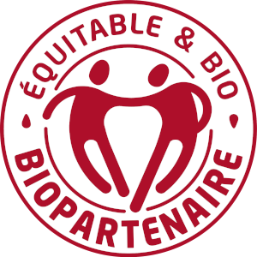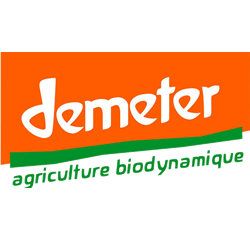The must-have label list for real organic products!
- Mathilde M

- Jan 31, 2021
- 3 min read
Updated: May 18, 2021
Hi there,
Have you also noticed how easy it is to be fooled by some so-called "Organic" denominations on the packaging? Did you know that this denomination is actually not protected for non-food items?
For instance, last week I was looking for toilet paper, and I had to buy some at Colruyt Supermarket because the Cooperative or bulk shop I'm used to going to didn't sell any. So, I looked for the greenest alternative, and I saw those ones with the "Organic" denomination on them. Of course, I bought those ones thinking it was a good purchase. Except that I didn't know this term is not protected for non-food products. In conclusion, this toilet paper is in reality absolutely not organic at all...
I hate being fooled like that! Especially by those big money-oriented & consumerism firms.
Anyway, I decided to run my own search on the topic and to list all the good labels. I thought it might be interesting to share it with you.
Here we go:

Organic label list

The first label is the Organic European Label, which is mandatory for all organic products. Cautious, it does not mean that the product is green. It solely means that min 95% of the components are from organic production, but, still, the product may come from Asia and be sold in Belgium...

Those ones are the national organic labels for:
- Germany,
- Great Britain,
- Belgium,
- France,
- Holland.
There are often displayed in addition to the European one. Once again, it does not mean the product is 100% environmentally-friendly.

Nature & Progres is a French organic label, which is stricter than the previous ones. Indeed, it defines more rules in terms of biodiversity, seasonality, animal wellness, short circuit, and the use of resources. This label is not only for food but also for cosmetics and household products.
Those labels are interesting because they mention more than being organic.
For instance, Biopartenaire also advocates fairtrade. As for Biogarantie, it is quite the same except that 50% of the components must be from Belgium.
Demeter respects organic as well as biodynamics regulations.

This label claims sustainable fishing by certifying the fish is not coming from overfishing.

This one proves that 95% of cosmetic components are natural and organic. This label authorizes a very tiny amount of unnatural products because not available naturally. Plus the packagings are recyclable or biodegradable.
Cautious to fake labels!
Sometimes, you won't see any labels, but it does not mean the product is not organic. The point is that it costs an arm and a leg to be organically certified. This is why some producers do not have the financial means to put the label on their products. Make sure to check the components list!
However, when we talk about huge multinational firms, that doesn't make any sense as they clearly have the money for it. They also really love fooling us and producing "fake" labels using green colors, familiar denominations such as "Zero pesticides", "Better for everyone", "sustainable", "eco"... you name it.
In a nutshell, be really cautious and use this organic label list when you see a label you're not sure about. Also note that if there's any lack of transparency, that clearly is not a good sign.
If you like this type of article, please let me know and do not hesitate to like it by clicking right below. Also, find some more articles like this here.
Math,
PS: Click here for the French version.









Comments